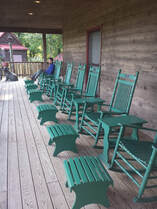QEP/ANTIRACISM SLO
Students can describe strategies, grounded in their practice,
for working toward racial justice appropriate to their
particular vocational settings.
for working toward racial justice appropriate to their
particular vocational settings.

